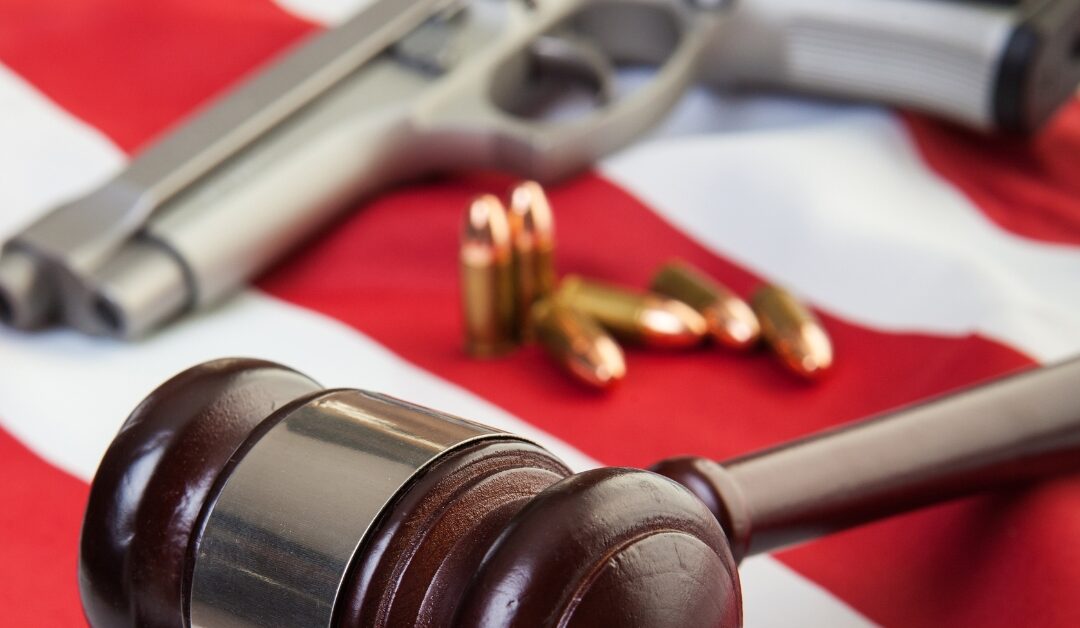
Scharff Law Blog
We Go to Battle to Protect Your Freedom

Arrested on a Gun Charge? Read This Before You Talk
Getting arrested on a gun charge in North Carolina can leave you feeling confused, angry, and scared. The decisions you make in the first few hours after your arrest can change everything about how your case unfolds.
You may feel pressure to explain yourself or answer questions, especially if police seem friendly. But talking without a lawyer can seriously hurt your chances of a strong defense.
Whether the charge involves concealed carry, possession by a felon, or having a firearm during another alleged crime, your words matter. The police are trained to get information that supports a case, not to protect your rights.
In this post, you’ll find out:
Why staying silent protects you
How gun charges work in North Carolina
What steps to take immediately
What can happen if you talk too soon
Let’s look at why holding back now could save you from bigger consequences later.

Gun Charge Attorney Uncovers 12 Loopholes
Getting hit with a gun charge can feel like your world just flipped upside down. But before you assume the worst, it’s important to know how many legal defenses may be hiding in plain sight.
Most people don’t realize how often police make errors or cut corners during an arrest. A skilled gun charge attorney knows how to spot those weak points and use them to your advantage.
Here’s the truth—what seems like a slam-dunk case for the prosecution might be full of legal holes. And if you’re facing charges, you deserve to know what those loopholes are.
In this post, you’ll uncover 12 legal strategies that could apply to your case, including:
Police procedures that violate your rights
Flawed search and seizure tactics
Missing or mishandled evidence

Can a Felony Be Expunged in North Carolina?
If you have a felony on your record in North Carolina, you’re probably wondering if there’s a way to clear it. Whether it’s stopping you from getting a job, finding housing, or rebuilding your life, that record can feel like a locked door.
The good news is that North Carolina law does allow for felony expungement in certain cases. But the process isn’t simple. It depends on the type of charge, how long it’s been, and what you’ve done since.
This guide walks you through what you need to know. You’ll find out who qualifies, what the process looks like, and what life could be like after a successful expungement.

Easy Expunctions: Erase Your Record Faster Than You Think
You don’t have to live with the weight of your past forever. If a criminal charge, or even just an arrest, has been holding you back, it’s time to look into easy expunction. And in North Carolina, the process may be easier than you think. With the right guidance, you could qualify to clear your record and finally move forward.
Expunction can open doors that once felt closed.
Imagine this:
Job applications without fear
Rental housing approvals
College admissions
Professional licensing
You’ve already done the hard part—dealing with the consequences. Now it’s about reclaiming your future with clarity and confidence.

Expungement: NC Second Chance Laws Explained
A criminal record can follow you for years, affecting your job opportunities, housing options, and even your ability to get a loan. If you’re ready to leave past mistakes behind, North Carolina’s expungement NC laws might offer the fresh start you need.
Expungement removes certain charges or convictions from your record, making it easier than ever to move forward without the weight of a criminal past. But not everyone qualifies, and the process can be more complex than it seems.
Understanding North Carolina’s second chance laws helps you determine if you’re eligible and what steps you need to take.
Do Misdemeanors Go Away? What You Need To Know
You might think a misdemeanor is just a minor issue, but it can have lasting effects on your life. Whether it disappears depends on the laws in your state, the type of offense, and whether you take action to clear your record.
Some misdemeanors stay on your record permanently, while others can be removed through expungement or record sealing. Employers, landlords, and even lenders can see these charges, making it harder to move forward.
Understanding your options helps you take control of your future. If you’re wondering whether your misdemeanor will go away, let’s look at what affects your record and how you might clear it.
What Does Expunged Mean in North Carolina?
If you have a criminal record in North Carolina, you might wonder if there’s a way to clear it. Expungement allows certain charges or convictions to be erased from your record, giving you a fresh start. Expunged records no longer show up on formal background checks unexpectedly and stop you from moving forward.
Once a record is expunged, it’s like it never existed. You don’t have to disclose it on job applications, housing forms, or most background checks.
But not every charge qualifies, and the process can take time.
Understanding how expungement works helps you decide if you’re eligible. Let’s break down what it means, who qualifies, and how to start the process.
How Long Does It Take To Change Your Name in North Carolina?
Changing your name is a deeply personal decision. Whether motivated by a significant life event, personal identity, or a desire for a fresh start, the process to change your name in North Carolina is complex. But how long does it take to change your name? Let’s...
Why Is My Husband Yelling at Me? Understanding Domestic Abuse and Your Rights
It’s normal to feel confused and hurt when someone you love raises their voice at you. Yelling can sometimes feel like a release of frustration, but it can also cross a line and become abusive. If you’re wondering where that line is, you’re not alone.
Abuse isn’t always physical. It can be emotional, verbal, or psychological. Yelling, belittling, and intimidation are some of the ways abuse can manifest.
If you’re questioning whether this behavior is normal or something more, understanding what constitutes domestic abuse can help.
Let’s talk about the signs, your rights, and what steps you can take to protect yourself.
Expunge Your Criminal Record and Reclaim Your Future
Clearing your criminal record can feel like a second chance at life. Whether you’re looking to secure better job opportunities, access housing, or simply move forward without the weight of past mistakes holding you back, expungement offers a path to a fresh start.
You might wonder where to begin or how to navigate the legal process. The truth is, understanding the steps in North Carolina can make all the difference.
Let’s break it down together so you know what to expect and how to take action with confidence.